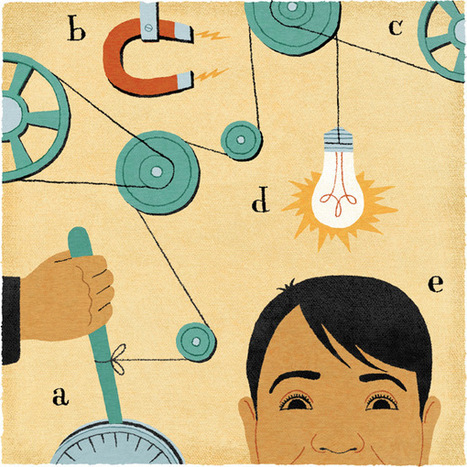Imagine for a moment that all human beings had the same IQ, but that some of us knew how to tap into it better than others. How would we approach educati
Research and publish the best content.
Get Started for FREE
Sign up with Facebook Sign up with X
I don't have a Facebook or a X account
Already have an account: Login
Tech tools that assist all students to be independent learners & teachers to become better teachers
Curated by
Beth Dichter
 Your new post is loading... Your new post is loading...
 Your new post is loading... Your new post is loading...
|

niftyjock's curator insight,
July 28, 2014 6:26 PM
Being a man, I'm very poor at reflection, but by breaking it into metacognitive practices helped me think about my thinking. 
David Baker's curator insight,
July 29, 2014 6:13 PM
The recommendations for developing a “classroom culture grounded in metacognition” are great teaching insights and this serves as a powerful link to the research. The following excerpt is one nugget."Giving Students License to Identify Confusions within the Classroom Culture: ask students what they find confusing, acknowledge the difficultiesIntegrating Reflection into Credited Course Work: integrate short reflection (oral or written) that ask students what they found challenging or what questions arose during an assignment/exam/projectMetacognitive Modeling by the Instructor for Students: model the thinking processes involved in your field and sought in your course by being explicit about “how you start, how you decide what to do first and then next, how you check your work, how you know when you are done” (p. 118)
To facilitate these activities, she also offers three useful tables: Questions for students to ask themselves as they plan, monitor, and evaluate their thinking within four learning contexts—in class, assignments, quizzes/exams, and the course as a whole (p. 115)Prompts for integrating metacognition into discussions of pairs during clicker activities, assignments, and quiz or exam preparation (p. 117)Question"
Ness Crouch's curator insight,
April 7, 2015 1:19 AM
Metacognition is one of the hardest aspects of student's learning to get from them. Children find it difficult to communicate about their thinking and teacher's find it difficult to teach these skills. This is well worth a read to help develop our own understanding of metacognition. |











It's all about teaching the Growth Mindset! We really need to encourage students to do more of the question asking and thinking!
Great article! I'm sharing it with my students in a success seminar.
Very interesting article. Great way to think about learning.